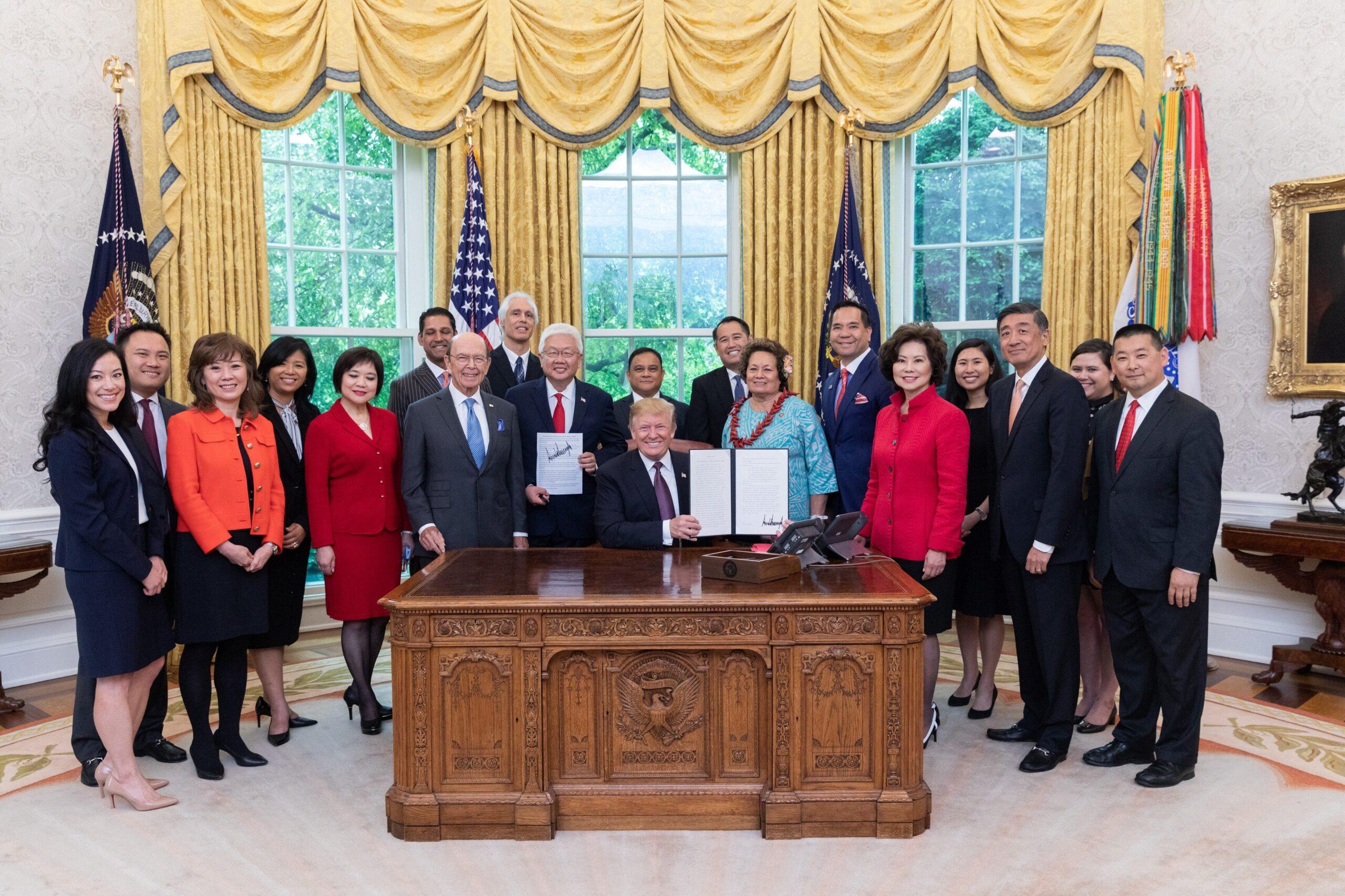File photo shows President Donald Trump on May 13, 2019 signed an executive order reestablishing the White House Initiative on Asian Americans and Pacific Islanders. Upon taking office for his second term on January 20, 2025, Trump signed a flurry of executive orders to rescind actions established by the Biden-Harris administration, including the dissolution of the White House Initiative on Asian Americans, Native Hawaiians and Pacific Islanders (WHAANHPI).
Photo courtesy of US Department of Commerce
ON his first day back in office on Monday, January 20, United States President Donald Trump signed a series of executive orders reversing several policies implemented under the Biden-Harris administration.
The WHIAANHPI was designed to enhance federal engagement with AA & NHPI communities, ensuring they had equitable access to federal resources, policies, and programs. It played a vital role in addressing barriers these communities face in areas such as health, education, and economic opportunity.
Rep. Grace Meng, Chair of the Congressional Asian Pacific American Caucus (CAPAC), expressed her disappointment with Trump’s decision. In a statement, she said: “I am disappointed that the new Administration decided that it was an important Day 1 priority to dissolve the White House Initiative on Asian Americans, Native Hawaiians, and Pacific Islanders. The White House Initiative has been critical to connecting Asian American, Native Hawaiian, and Pacific Islander (AANHPI) communities to the federal government and has been a bipartisan institution across every administration for the last 25 years.”
She said the caucus would work “with any administration, from either party, to ensure AANHPI communities are engaged in the federal policymaking process and are not left behind.”
The White House initiative for the AAPI community was first established in 1999 by then-President Bill Clinton through Executive Order 13125, aiming to improve the quality of life for these communities by increasing their participation in federal programs. With the Initiative, the first President’s Advisory Commission on AAPIs was formed with 15 community members and chaired by former Rep. Norman Mineta.
The initiative was subsequently renewed by Presidents George W. Bush and Barack Obama during their respective two-terms in office.
In 2019, Trump issued Executive Order 13872, reestablishing the Initiative during his first term and moving it from the Department of Education back to the Department of Commerce, with then Secretary of Commerce Wilbur Ross and then Secretary of Transportation Elaine Chao serving as co-chairs of the initiative. This version also established an Advisory Commission on Asian Americans and Pacific Islanders (AAPI) to help broaden access to more employers and other economic resources for the AAPI community.
Biden later updated the Initiative in 2021 under Executive Order 14031, renaming it to White House Initiative on Asian Americans, Native Hawaiians, and Pacific Islanders (WHIAANHPI) to include the Native Hawaiian community.
According to Executive Order 14031, the Initiative is tasked with advancing “equity, justice, and opportunity for AA and NHPI communities by coordinating Federal interagency policymaking and program development efforts to eliminate barriers to equity, justice, and opportunity faced by AA and NHPI communities, including by advancing policies, programs, and initiatives.”
The same year, Biden signed the COVID-19 Hate Crimes Act, a landmark law that made hate crime reporting more accessible and authorized grants for crime-reduction programs. The Act was a response to the alarming 189% surge in anti-Asian hate crimes from 2020 to 2021.
Advocates warn that dissolving the WHIAANHPI will leave vulnerable communities without a direct pipeline to federal policymaking. They emphasize the Initiative’s crucial role in combating systemic inequities and addressing anti-Asian discrimination.






